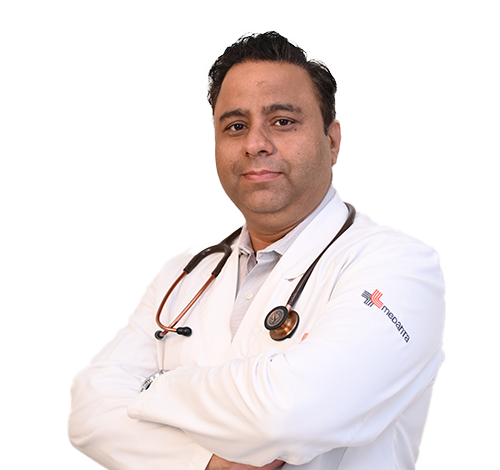Liver Cancer: A Silent Danger, But Not Without Hope
By a Liver Cancer Specialist in Lucknow
The Silent Threat: Liver Cancer
Liver cancer has earned the reputation of being a “silent killer” because it often grows unnoticed until it reaches an advanced stage. This aggressive cancer is the fastest growing cause of cancer-related deaths worldwide. Closely linked to chronic liver conditions such as cirrhosis, hepatitis B and C, and long-term alcohol abuse, liver cancer is a public health emergency in many parts of the world.
On a global scale, liver cancer is the sixth most commonly diagnosed cancer and ranks third in cancer-related deaths. Every year, more than 900,000 new cases are diagnosed, making early detection and public awareness absolutely crucial. In India, the burden is significant, particularly among men, where it is among the top five causes of cancer mortality. Risk factors such as increasing alcohol consumption, a surge in fatty liver disease, and widespread hepatitis B and C infections are driving a steady rise in liver cancer cases. Unfortunately, limited awareness and inadequate screening mean most patients are diagnosed too late for curative treatment.
📢 If your liver is sick, your body speaks—are you listening? If you suffer from cirrhosis, hepatitis, or unexplained weight loss, seek evaluation from a liver cancer specialist in Lucknow today.
What Causes Liver Cancer?
Liver cancer most commonly arises in the setting of chronic liver inflammation, particularly in patients who already have cirrhosis. Chronic infections with hepatitis B or C viruses remain the leading global causes of hepatocellular carcinoma (HCC), especially in Asia and Africa. In India, alcohol-induced liver cirrhosis is a primary driver of liver cancer, while non-alcoholic fatty liver disease (NAFLD) is an emerging risk, particularly among those with obesity or diabetes.
Other notable risk factors include exposure to aflatoxins (toxins produced by molds found on improperly stored grains and nuts), a family history of liver cancer, and rare genetic liver disorders such as hemochromatosis and Wilson’s disease. Alarmingly, more than 80–90% of liver cancers develop in livers that are already diseased or cirrhotic, highlighting the importance of regular surveillance in high-risk individuals.
Recognizing the Symptoms: What to Watch Out For
Liver cancer can remain silent in its early stages, which is why regular check-ups and imaging in high-risk groups are critical. When symptoms do occur, they often indicate advanced disease. Common warning signs include pain or a feeling of fullness in the right upper abdomen, unexplained weight loss, fatigue, jaundice (yellowing of the eyes or skin), and abdominal swelling. Other signs may include loss of appetite, nausea, vomiting, dark-colored urine, pale stools, and an enlarged liver or spleen.
A key blood marker often used in diagnosis is alpha-fetoprotein (AFP), which tends to be elevated in many patients with HCC. However, not all liver cancers raise AFP levels, so imaging studies are vital.
📢 A liver that hurts too late is a life lost too soon. If you already have cirrhosis or hepatitis, do not wait for symptoms—speak to a liver cancer specialist in Lucknow for screening today.
How Is Liver Cancer Diagnosed?
Diagnosis typically starts with an abdominal ultrasound, especially in patients with cirrhosis. This simple, non-invasive scan should be repeated every six months for high-risk individuals. Blood tests, especially AFP, can also offer important clues. If a suspicious lesion is detected, advanced imaging techniques such as triple-phase CT scan or MRI are considered the gold standards for confirming the diagnosis and staging the disease. In many cases, especially in cirrhotic patients, biopsy is not necessary because imaging findings are often distinctive.
Further tests such as a Fibroscan or liver function tests help assess liver reserve and overall functionality. In select cases, a PET-CT scan may be used to check for spread or recurrence.
🏥 Diagnosis can often be made without biopsy when imaging is clear. Always consult a trained liver cancer specialist in Lucknow for accurate evaluation.
Types and Stages of Liver Cancer
Hepatocellular carcinoma (HCC) is the most common type of liver cancer, accounting for up to 90% of cases. It arises directly from liver cells. Cholangiocarcinoma, or bile duct cancer, is less common but tends to be more aggressive. Rarely, patients may have a mixed tumor known as combined HCC-CC, while children may develop hepatoblastoma, a pediatric liver cancer.
Liver cancer staging is critical for determining treatment options. The Barcelona Clinic Liver Cancer (BCLC) staging system is widely used. Stage 0 (very early) and Stage A (early) are typically candidates for curative treatments such as surgery, liver transplantation, or local ablation. Stage B (intermediate) involves multiple tumors but with preserved liver function, often treated with a procedure called TACE (Transarterial Chemoembolization). Stage C (advanced) involves spread to blood vessels or lymph nodes and may require systemic therapies such as targeted drugs or immunotherapy. Stage D (end-stage) denotes poor liver function, where the focus shifts to supportive or palliative care.
Treatment Options: A Stage-Based Approach
For patients diagnosed in early stages, curative treatments offer excellent survival outcomes. These include surgical resection (removing the tumor) in those with good liver function, and liver transplantation for patients with small tumors within the Milan criteria. Local ablation techniques, such as radiofrequency ablation (RFA) and microwave ablation (MWA), are minimally invasive methods that work well for tumors less than 3 cm in size.
For intermediate-stage cancer, TACE is the standard of care. This procedure involves delivering chemotherapy directly into the tumor through the hepatic artery, along with embolic particles to block blood flow to the cancer.
Advanced-stage liver cancer may require systemic therapy. Several targeted drugs like sorafenib, lenvatinib, regorafenib, and cabozantinib have shown benefit. Immunotherapy is now a breakthrough option, with combinations like atezolizumab and bevacizumab (as validated by the IMbrave150 trial) or durvalumab and tremelimumab (STRIDE regimen) offering new hope. In some cases, radiotherapy can be used for symptom control or in the setting of limited metastasis.
✅ Treatment must be tailored to each patient based on tumor biology, liver function, and overall health—guided by a liver cancer expert in Lucknow.
Can Liver Cancer Be Prevented?
Yes, many cases of liver cancer are preventable. Vaccination against hepatitis B is one of the most effective strategies. Treating hepatitis C with direct-acting antivirals can also significantly reduce cancer risk. Avoiding excessive alcohol, maintaining a healthy weight, and managing diabetes can help prevent NAFLD. People should also avoid unregulated herbal supplements, which may harm the liver.
Most importantly, individuals with cirrhosis or chronic hepatitis should undergo liver cancer screening every six months. Detecting cancer early means a higher chance of cure.
📢 Liver cancer prevention starts with liver protection. Speak to a liver cancer specialist in Lucknow to assess your risk and build a prevention plan.
Final Note: Act Early, Stay Hopeful
Liver cancer doesn’t always mean hopelessness. Thanks to advancements in surgery, transplantation, local ablation, targeted therapies, and immunotherapy, many patients can be treated and even cured. The key is early detection.
If you have liver disease, chronic hepatitis, or notice unexplained fatigue and weight loss—listen to your body. Don’t ignore vague symptoms. Your liver may not complain until it’s too late.
📢 Don’t ignore your liver—because it never complains until it’s too late.
Book Your Liver Health Consultation Today
If you or a loved one has been diagnosed with cirrhosis, hepatitis B/C, or a liver mass—don’t wait. Book your appointment today with the most trusted liver cancer specialist in Lucknow. Early diagnosis can be life-saving.












